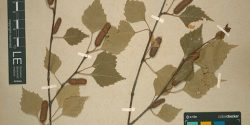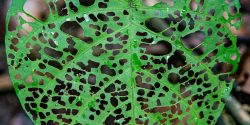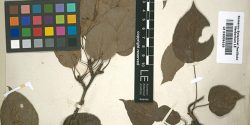Past research
The ecological and environmental science suffers from various biases. Our fundamental objective is to evaluate the extent to which different biases associated with scientific research affect our knowledge. In particular, we seek to identify the particular research methods and research fields within ecological and environmental sciences that are most prone to biases and the groups of stakeholders most affected by these biases. Our applied objective is to combat the adverse impacts of biases on ecological and environmental knowledge by drawing the attention of scientists and decision makers to this bias problem and by educating students about biases in scientific research.ed (historical) data to identify past changes in background losses of woody plant foliage to insects.
Ongoing research
Now I focus on exploration of the pitfalls and caveats associated with the use of herbivory data collected from herbarium specimens in global change research.
Featured publications
Zvereva, E. L., & Kozlov, M. V. (2021) Biases in ecological research: attitudes of scientists and ways of control. Scientific Reports, 11, 226 (doi: 10.1038/s41598-020-80677-4).
The properties of human mind affect the quality of scientific knowledge through the insertion of unconscious cognitive biases. We found that the current level of awareness about biases is generally low among ecology scientists. Moreover, ecological scientists estimate the risk of biases in their own studies as much lower than in science in general and in studies by other scientists working in the same research field. Senior scientists are more prone to biases that early career researchers, and female scientists show higher caution against biases than male scientists do. Due to unconscious origin of biases, it is impossible to combat them without external intervention.
Kozlov, M. V., Sokolova, I. V., Zverev, V., Egorov, A. E., Goncharov, M. Y., & Zvereva, E. L. (2020) Biases in estimation of insect herbivory from herbarium specimens. Scientific Reports, 10, 12298 (doi: 10.1038/s41598-020-69195-5).
We experimentally demonstrated that both collectors and curators generally preferred plant specimens with lesser leaf damage, and revealed that the strength of this preference varied among persons. In addition, the differences in measured leaf damage between ecological samples and herbarium specimens varied among plant species and increased with the increase in field herbivory. Consequently, leaf damage in herbarium specimens did not correlate with the actual level of herbivory. We conclude that studies of herbarium specimens produce biased information on past levels of herbivory due to multiple factors that cannot be controlled in data analysis.
Zvereva, E. L. & Kozlov, M. V. (2019) Biases in studies of spatial patterns in insect herbivory. Ecological Monographs, 89, e01361 (doi: 10.1002/ecm.1361).
A meta-analysis revealed that the effect sizes (ESs) decreased with increases in the numbers of plant species involved in the study, with 61% lower ESs for herbivory estimated on all plants growing in study plots compared to herbivory on selected species. When all leaves from a tree or branch were sampled for measurements of herbivory or when random or systematic selection protocols were applied, ESs were 74% smaller than in cases of more subjective haphazard selection. In addition, ESs were 97% and 135% greater when the person conducting sampling and measuring was aware of the research hypothesis or sample origin, when compared with situations when the observer was blinded to these factors. Thus, an unconscious tendency of researchers to find support for their hypotheses and expectations generally leads to overestimation of the effects under study.
Kozlov, M. V. & Zvereva, E. L. (2015) Confirmation bias in studies of fluctuating asymmetry. Ecological Indicators, 57, 293-297 (doi: 10.1016/j.ecoind.2015.05.014).
We experimentally tested the hypothesis that the outcomes of studies addressing fluctuating asymmetry may be influenced by confirmation bias, i.e. the tendency of humans to seek out evidence in a manner that confirms their hypotheses and beliefs. We asked each of 31 scientists to measure FA from the scanned images of the same set of birch leaves and provided these scientists with either true or false information about the origin of these leaves. The participants who believed that the leaves originated from a heavily polluted site reported significantly higher values of FA when compared to the participants who believed that the leaves were collected from an unpolluted site. We conclude that when scientists expected to find high FA in some samples, the results of their measurements confirmed their expectations.
Co-authors
A. E. Egorov
M. Y. Goncharov
V. Sokolova
V. Zverev
E. Zvereva
Funding
Kone Foundation
Academy of Finland


